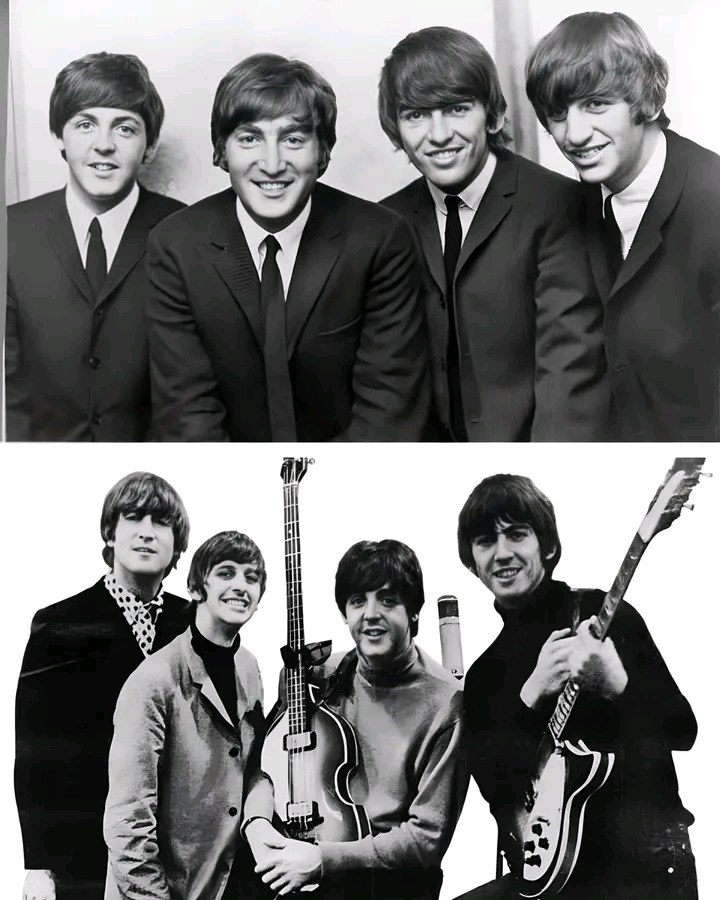What Makes The Beatles’ Music Timeless: An Enduring Legacy of Innovation and Emotion
The Beatles stand as one of the most influential and celebrated bands in the history of popular music. Decades after their breakup in 1970, their songs continue to resonate with listeners across generations, maintaining a relevance that seems almost untouched by the passage of time. But what exactly makes The Beatles’ music so timeless? Is it their innovative approach to songwriting, their groundbreaking studio techniques, or perhaps the universal themes woven into their lyrics? The answer lies in a combination of these factors, creating a musical legacy that continues to captivate audiences worldwide.
The Foundation of Musical Innovation
From their earliest days, The Beatles demonstrated an extraordinary ability to innovate within the confines of popular music. Their transition from simple skiffle-inspired tunes to complex, experimental compositions marked a turning point in the history of recorded music. Albums like *Revolver*, *Rubber Soul*, and *Sgt. Pepper’s Lonely Hearts Club Band* exemplify their willingness to push boundaries, blending genres such as rock, folk, Indian classical music, and psychedelia.
Their mastery of studio techniques was revolutionary. Producer George Martin, often referred to as the “Fifth Beatle,” played a crucial role in this process, encouraging experimentation with multi-tracking, tape loops, and unconventional instruments. For instance, the innovative use of backward recordings, sitar sounds, and orchestral arrangements brought a new dimension to popular music, elevating the album format from mere collections of singles to cohesive artistic statements.
Craftsmanship in Songwriting
At the heart of The Beatles’ enduring appeal is their exceptional songwriting. John Lennon and Paul McCartney’s partnership became one of the most prolific and influential in music history. Their ability to craft melodies that are both catchy and emotionally compelling is unmatched. Songs like “Yesterday,” “Let It Be,” and “Hey Jude” combine memorable melodies with lyrics that evoke universal feelings of love, longing, hope, and introspection.
George Harrison’s contributions, especially with tracks like “Here Comes the Sun” and “While My Guitar Gently Weeps,” added depth and diversity to their repertoire. Ringo Starr’s charismatic personality and drum work provided a steady rhythmic foundation, but his songwriting contributions, such as “Octopus’s Garden,” also added a playful touch to their catalog.
The Beatles’ lyrics often explored themes of love, peace, and social change, resonating broadly with audiences. Their willingness to address contemporary issues and personal introspection gave their songs a depth that transcended the pop genre, allowing listeners to find meaning in their music long after the initial release.
Universal Themes and Emotional Resonance
One of the key reasons The Beatles’ music remains timeless is the universality of their themes. Love, heartbreak, hope, and social consciousness are themes that continue to resonate with people across cultures and generations. Their songs serve as a mirror to human experience, capturing emotions that are as relevant today as they were in the 1960s.
Moreover, their ability to evolve artistically meant that different generations could find something meaningful in their music. The innocence of early hits like “I Want to Hold Your Hand” appeals to new listeners discovering their music, while the more introspective and experimental works of later albums attract mature audiences seeking depth and artistry.
Cultural Impact and The Beatles’ Persona
Beyond their musical innovations, The Beatles also played a significant role in shaping cultural trends. Their fashion, attitudes, and social activism reflected and influenced the shifting cultural landscape of the 1960s. As icons of the counterculture movement, their image and message of peace and love connected with youth around the world.
This cultural significance added layers of meaning to their music, making it not only entertainment but also a symbol of social change. As a result, their songs have become anthems for movements advocating for peace, equality, and understanding, further cementing their timeless status.
The Enduring Influence on Musicians and Pop Culture
The influence of The Beatles extends beyond their own recordings. Countless artists cite them as inspirations, and their techniques and songwriting approaches continue to inform modern music production. From the evolution of the concept album to the integration of diverse musical styles, their innovative spirit lives on in artists across genres.
In addition, their impact on film, fashion, and popular culture remains evident. Films like *A Hard Day’s Night* and *Help!* set new standards for music videos and artist branding. Their legacy is also preserved through tribute bands, documentaries, and academic studies, ensuring that new generations continue to learn from and celebrate their work.
The Power of Nostalgia and Mythology
Part of The Beatles’ timeless appeal is rooted in nostalgia. For many, their music is intertwined with the cultural upheavals of the 1960s, a period of significant social and political change. Listening to their songs can evoke memories of a transformative era, fostering a sense of connection across time.
Additionally, the mythology surrounding The Beatles—their personalities, relationships, and the stories behind their songs—adds an intriguing layer of mystique. This mythology keeps their story alive, inspiring countless books, films, and debates, all contributing to the enduring fascination with their music.
Conclusion
In conclusion, The Beatles’ music endures because it combines innovation, craftsmanship, emotional depth, and cultural significance. Their willingness to experiment musically, their universal themes, and their ability to evolve artistically have ensured that their songs remain relevant and inspiring decades after they were first recorded. As pioneers who redefined what popular music could be, The Beatles created a timeless legacy that continues to influence and delight audiences around the world. Their music is not just a reflection of their era but a universal language that continues to speak to the human condition—making it truly, forever, timeless.



